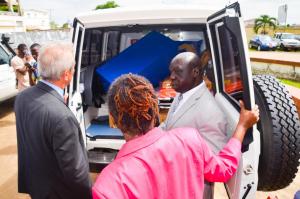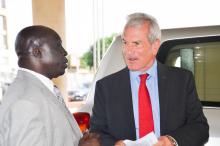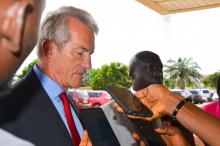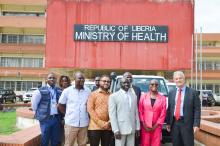Strengthening Liberia’s Health System – WHO donates three vehicles to the Ministry of Health
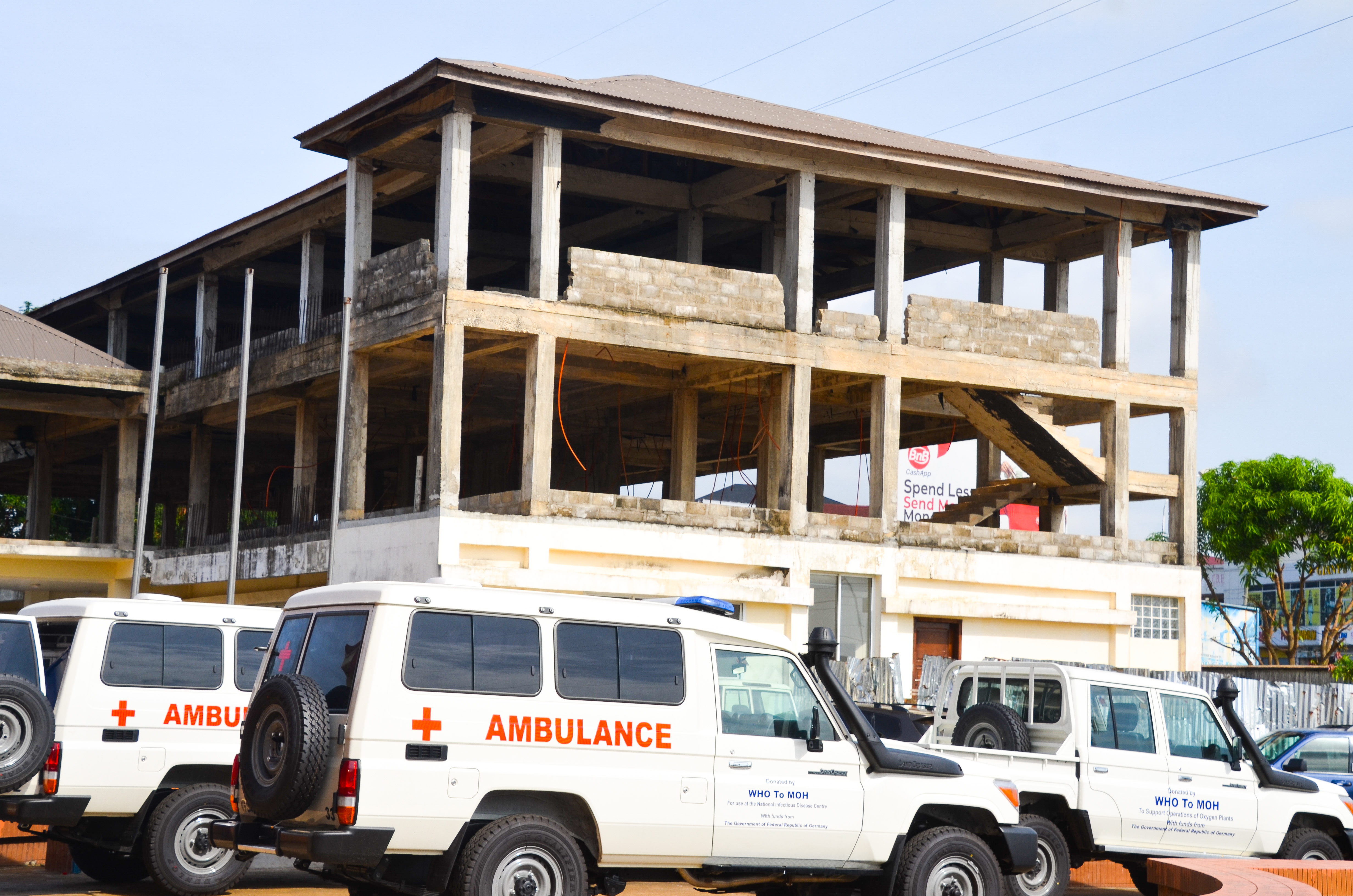
As part of efforts to enhance the quality of health care services in Liberia, the World Health Organization (WHO) with support from the government of the Federal Republic of Germany, today donated to the Ministry of Health two (02) ambulances for use at the National Infectious Disease Center, and one (01) land cruiser pick up to support oxygen plant operations. Last year, WHO supported the Ministry of Health to establish two modern oxygen plants at the Liberia Government Hospital Tubmanburg in Bomi and Star Base in Montserrado. The Bomi and Star Base plants can produce up to 9Nm3/Hr (~20 cylinders/day) and 50Nm3/Hr (~100cylinders/day) of medical grade oxygen, respectively. The duplex plant at Star Base plant is the largest oxygen plant in Liberia.
"We are very pleased to receive these two ambulances and the utility vehicle—thanks to the WHO and German government. As you know, we began operations at the oxygen plant at Star Base, and we are now able to provide oxygen within and around Monrovia as other plants are operational. The utility vehicle will be used to collect and refill oxygen cylinders at Star Base, making sure that no facility struggles with oxygen supply," said Dr. Wilhelminah Jallah, Honorable Minister of Health.
The Hon. Minister further elaborated that the two ambulances will serve the Infectious Disease Center at Star Base, which was initially opened during the COVID-19 response but will now function as a centre to isolate and treat all cases of epidemic-prone diseases (such as Lassa fever, Measles, Meningitis), including COVID-19.
"We have already received Intensive Care Unit equipment at the center, and staff will soon be trained on its use. Other counties have smaller units; if they have patients that need to come for more intensive care, these ambulances will be used to transfer patients with infectious diseases.” said Liberia’s Minister of Health. “We promise to maintain these vehicles to the best of our capacity in making sure they support infectious diseases within the country".
The WHO, as an advisor to the Ministry of Health, has been instrumental in strengthening Liberia's health system in and out of public health emergencies. Recently, WHO announced the downgrading of the COVID-19 pandemic as a Public Health Emergency of International Concern (PHEIC).
"This time COVID-19 is no longer a Public Health Emergency of International Concern- Let me reiterate that the declaration does not mean that COVID-19 is over; however, it means we need to address COVID-19 in an integrated fashion and not as an emergency in itself. This is critical because the resources from COVID-19, such as these, will increase access to services and improve the system overall", said Dr. Peter Clement, WHO Representative in Liberia.
He further expressed that the Ministry of Health and WHO remain grateful to the government and people of Germany for their generous support to the people of Liberia throughout the COVID-19 pandemic, and more importantly, this logistical support will bring added value for better health outcomes and the achievement of Universal Health Coverage.
Speaking at the event, the German Ambassador to Liberia, His Excellency Dr. Jakob Haselhuber, demonstrated his excitement and that of the people of Germany in being part of this project, which focuses on strengthening Liberia’s health system, and pledged his government's continuous commitment to the cause.
"The Liberian health system has suffered many shocks in past and recent times; as such, the government, with support from partners, collaborated in an investment plan for building a resilient health system for Liberians, prioritizing nine key investment areas, among which were rebuilding a fit-for-purpose health workforce, re-engineering of the health infrastructure, strengthening emergency preparedness and response, and, surveillance. A critical element of a resilient health system, is the ability to use lessons and experiences learned from previous public health emergencies to inform its response", said Ambassador Haselhuber.
"Germany, together with the Canadian government and other donor partners, has been critical in supporting the Liberian government through various initiatives such as the installation of oxygen plants and the procurement of COVID-19 vaccines, which contributed to Liberia’s high vaccination rates in West Africa. In addition to the two ambulances, the land cruiser will be used to distribute medical oxygen and facilitate other operations of the PSA plants in Liberia. We trust that the ambulances and pickup will be used and maintained well so that they can contribute to further strengthening the health system and improving the quality of emergency care in Liberia", said Ambassador Haselhuber.
The COVID-19 crisis did reveal the need for States to address critical gaps in health system delivery that impeded their ability to respond effectively, leading to a critical gap in referral services and causing affected populations to experience life-threatening delays in obtaining emergency health services.
